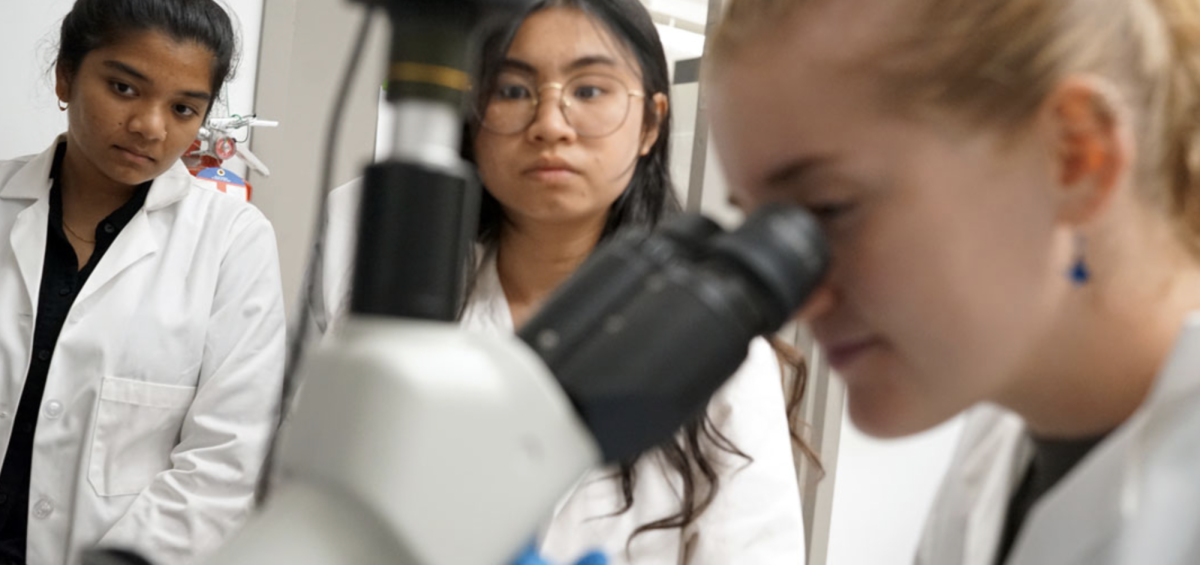This past August, Fordham introduced a new major in biochemistry. After the minor in biochemistry was launched in 2020, faculty from the biology and chemistry departments sought to establish a major in the program.
“The biochemistry major opens new career opportunities for students as the scope of the subject is very broad,” said Ipsita Banerjee, Ph.D, chair of the chemistry department. “It will prepare students for a wide range of professional careers, particularly for those interested in pursuing medicine or allied health fields or those who envision working in biotechnology, cosmetics, forensics, pharmacology, bioengineering or a career in research.”
The biochemistry major boasts a hands-on and interdisciplinary approach to today’s biggest questions and problems, such as possible cures for Alzheimer’s or cancer.
There are two tracks for the major: a general track and an American Chemical Society (ACS) track. The general track is best suited for students with an interest in “cell[ular], molecular, and structural aspects of biochemistry,” while the ACS track is for students who are “interested in chemistry and advanced structural and molecular aspects of biochemistry,” according to Fordham News.
First-year students looking to become a biochemistry major this fall had to enter undeclared, but starting next year, students may enter the university as a biochemistry major. Many students in the biology and chemistry departments are also switching their major to biochemistry.
Hannah Hunt, FCRH ’24, a biochemistry minor, explained what drew her to the program. “I was particularly interested in biochemistry because the way in which chemicals interact with biological systems is so complex, but really important for understanding how the world works and how we can best take care of ourselves,” she said. “I never feel bored studying biochemistry because there’s always something new to learn and the opportunity to improve our quality of life.”
In addition, Hunt was consulted on what the biochemistry major may look like for future students over the course of four years. “For many STEM majors, our major and core requirements rarely overlap, so it was important to provide a guide for course planning that wouldn’t be super overwhelming. Hopefully, it will allow students to create a schedule with plenty of time for research, extracurriculars and personal time,” she said.
Mary Biggs, FCRH ’25, a biochemistry major, also spoke positively about the development of the biochemistry program. Previously a biology and chemistry double major, switching to biochemistry was an obvious choice, and she “appreciate[s]” the interdisciplinary approach to the program.
“For example, I’m currently taking a neurochemistry class at Lincoln Center that counts as a major elective,” she said. “The interdisciplinary nature of the major program really drew me to switch.”
Banerjee said she hopes that the creation of the biochemistry major will “elevate the University’s connections to growing STEM industries,” according to Fordham News, and that this interdisciplinary program will broaden research opportunities.
“Research is very highly recommended as it provides students with indispensable skills and also makes you think out of the box,” said Banerjee.
For those interested in declaring the biochemistry major, students can reach out to Banerjee or their core advisor.









































































































































































































